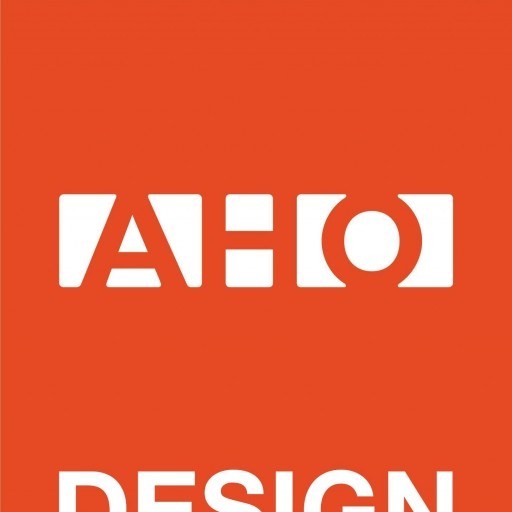Photos of university / #ucl
Inter-disciplinary Urban Design at University College London offers a comprehensive and innovative approach to understanding and shaping the urban environment. This programme is designed for students who are passionate about addressing complex urban challenges through creative, sustainable, and inclusive design solutions. The course combines principles from architecture, landscape, planning, and social sciences to equip graduates with the skills needed to develop multi-dimensional projects that enhance the quality of urban life. Throughout the programme, students engage with cutting-edge research, state-of-the-art technologies, and real-world case studies to understand the social, economic, and environmental aspects of urban systems. The curriculum emphasizes collaborative working methods, encouraging students from diverse backgrounds to forge integrated solutions that consider the cultural, political, and ecological contexts of cities worldwide. With access to UCL's extensive resources, laboratories, and urban research centers, students have the opportunity to work on live projects and internships that provide practical experience. The programme prepares graduates for careers in urban design consultancy, planning agencies, non-governmental organizations, and academic research. An interdisciplinary approach ensures that students develop critical thinking, innovative problem-solving skills, and a global perspective on urban development. The programme’s emphasis on sustainability and resilience reflects contemporary priorities for creating liveable, adaptive cities for future generations. Graduates leave equipped with the knowledge and skills needed to influence urban policies and design strategies, making meaningful impacts on the built environment. Whether aiming to work at local, national, or international levels, students gain a rigorous education that combines theory with practice, fostering leadership in the field of urban design.
This programme provides an interdisciplinary space in which students can examine the challenges of urban design from comparative disciplinary perspectives; students are exposed to the latest cutting-edge urban design research and teaching at the UCL Bartlett and are offered the opportunity to conduct a substantial piece of individual urban design research, receiving training in methodologies appropriate to the conduct of urban design and urban scale research.
Students undertake modules to the value of 180 credits.
The programme consists of two core modules (totalling 105 credits), and either a 15,000-word dissertation or a 10,000-word disssertation and a research-based design proposal (75 credits).
Core modules
- Inter-disciplinary Urban Design - this module draws from a range of named feeder modules from across The Bartlett and across UCL (see below)
- Urban Investigations - this module explores cutting-edge research and research techniques in urban design
Feeder modules
- Adaptable Cities
- Architectural Phenomena
- Cities, Space & Power
- Creative Cities
- Design as a Knowledge-Based Process
- Design and Real Estate
- Detailed Urban Design
- Embodied and Embedded Technologies, Cities as Interface
- Environmental Masterplanning
- From Strategic Vision to Urban Plan
- Geographic Information Systems and Science
- London, Aspects of Change
- Participatory Process: Building for Development
- Public Space & the City
- Social Dimensions of Sustainability
- Spatial Modelling and Simulation
- Spatial Cultures
- Spatial Justice
- Strategic Urban Design
- Theorising Practices: Architecture, Art & Urbanism
Dissertation/research project
All students undertake an independent urban design research project culminating in either a dissertation of 15,000 words or a 10,000-word dissertation and a research-based design proposal.
Teaching and learning
Methods of delivery will vary (because of the flexible nature of the programme) but a typical student might encounter studio teaching, formal lectures, analytical modelling, small-group tutorials and discussion, formal presentations, and site visits. Student performance is assessed through individual and group work, essays, and project work.
A minimum of an upper second-class Bachelor's degree in a cognate discipline or a relevant Master's degree from a UK university or an overseas qualification of an equivalent standard.
The Inter-disciplinary Urban Design program at University College London offers a range of financing options to support students throughout their studies. Domestic students can benefit from various funding opportunities, including government loans, scholarships, and bursaries. The UK government provides tuition fee loans for British citizens and eligible residents, which can cover the full cost of tuition fees. These loans are typically repayment-based, with repayment terms contingent upon income levels after graduation. International students are encouraged to seek scholarships specifically aimed at overseas applicants, which may cover partial or full tuition fees. UCL also provides a limited number of scholarships based on academic merit, financial need, or specific demographic criteria. Applicants are advised to explore external funding sources such as government-sponsored scholarships, research grants, and private foundations.
In addition to tuition support, students can access funding for living expenses, including student loans of various types and grants, depending on their nationality and residency status. Work opportunities within the university, such as teaching or research assistantships, may also be available to help offset living costs, although these are typically competitive and limited in number. The university's financial aid office offers detailed guidance to prospective and current students on available funding options, application procedures, and deadlines. It is recommended that students start exploring funding opportunities early in the application process to ensure they meet all eligibility criteria and secure the necessary financial support.
Furthermore, the program's interdisciplinary nature may open avenues for specific research grants or sponsorships related to urban studies, design, and planning. Students are encouraged to actively seek external funding sources, including industry-sponsored scholarships, especially those related to sustainable urban development and innovation. Overall, while the cost of the program may be significant, numerous financial aid options are designed to make studying urban design at UCL accessible to a diverse student body from various financial backgrounds.
Inter-disciplinary Urban Design at University College London is a comprehensive program aimed at developing innovative solutions for the complex challenges faced in contemporary urban environments. This program is designed for students interested in exploring the multifaceted aspects of urban development through an interdisciplinary approach that encompasses elements of architecture, planning, landscape design, engineering, and social sciences. The curriculum emphasizes sustainability, resilience, inclusivity, and technological integration to prepare graduates for careers in urban planning, design consultancy, policy-making, and research. Students benefit from an engaging academic environment facilitated by leading experts in the field, along with practical workshops, studio projects, and site visits that provide real-world experience. The program also encourages collaborative work across disciplines, fostering teamwork and diverse perspectives essential for tackling urban issues holistically. Graduates of Inter-disciplinary Urban Design at UCL are equipped with critical thinking skills, creative problem-solving abilities, and technical expertise, enabling them to influence the development of sustainable and livable cities worldwide. The course typically spans one to two years for full-time students, with options for part-time study available. Admission requirements generally include a relevant undergraduate degree, portfolio submission, and proficiency in English. The program's strong ties with industry partners and urban authorities provide students with networking opportunities and exposure to current challenges, ensuring they are well-prepared to make impactful contributions in the urban design arena.










